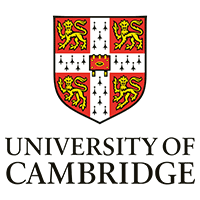

University of Cambridge : Admissions, Campus, Rankings, Courses, Scholarships, and Placements
The University of Cambridge, one of the world's most prestigious institutions, offers a world-class education with a robust academic environment. However, attending Cambridge can come with a significant financial commitment. The fee structure for international and domestic students varies based on the course of study, the student's residency status, and the specific college within the university. Understanding the fee structure is crucial for prospective students to plan their financials effectively.
For undergraduate students, the annual tuition fees can range significantly depending on the program, with different fees for arts, sciences, engineering, and other specialized programs. In addition to tuition, students must also consider other costs, such as college fees, administrative fees, and costs related to their chosen field of study. The university offers detailed breakdowns of the costs involved, and it is important for students to factor in additional living expenses, including accommodation, books, and supplies.
It’s also essential to consider that the University of Cambridge provides a wide range of financial aid options, including scholarships, grants, and loan opportunities. These financial aids can help reduce the burden of tuition fees and provide support to international students who might face higher tuition fees than UK residents. Moreover, Cambridge also offers assistance in the form of payment plans, allowing students to make quarterly payments instead of lump sums, which can ease financial management.
Below are details for the Bachelor of Engineering (B.E.) programs at Cambridge University:
University of Cambridge Undergraduate Fees
For undergraduate students, tuition fees are categorized based on the subject of study. Courses in the sciences, engineering, and medicine tend to have higher tuition fees due to the costs associated with laboratory work, equipment, and facilities. Arts and humanities courses are typically less expensive.
Arts and Humanities: Students enrolled in courses like History, English, and Philosophy generally pay lower tuition fees, around £22,000 per year, which is approximately ₹22,00,000 in Indian Rupees.
Social Sciences: Programs such as Economics, Law, and Political Science have tuition fees around £24,000 per year or ₹24,00,000.
Engineering and Natural Sciences: Students in engineering and natural sciences courses pay higher fees, approximately £28,000 per year or ₹28,00,000.
Computer Science: The Computer Science program at Cambridge also falls under the £28,000 per year range, translating to about ₹28,00,000 for international students.
Medicine: Medicine is the most expensive undergraduate course at Cambridge, with tuition fees of up to £55,000 per year, or about ₹55,00,000. The high fees reflect the intensive clinical training, laboratory work, and use of specialized medical equipment.
Postgraduate tuition fees are generally higher than undergraduate fees, with significant variation depending on the program. MBA and PhD programs tend to have the highest fees, especially for international students.
MBA Fees: The Cambridge Judge Business School’s MBA program is one of the most expensive postgraduate programs, costing approximately £57,000 per year or ₹57,00,000. This fee includes tuition, program resources, and access to the school’s global network of business leaders and mentors.
MPhil in Economics: The MPhil in Economics is a one-year, research-intensive program that costs around £28,000 or ₹28,00,000. This program prepares students for advanced research or professional careers in economics.
MSc in Engineering: Cambridge offers a range of MSc programs in different engineering disciplines, such as Civil, Mechanical, and Electrical Engineering. These programs typically cost £28,000 per year or ₹28,00,000.
PhD Programs: Fees for PhD programs at Cambridge vary depending on the department and field of study. Most PhD programs range from £20,000 to £30,000 per year, or ₹20,00,000 to ₹30,00,000. In addition to tuition, PhD students may need to factor in costs for research materials and living expenses.
Living Costs: In addition to tuition, students need to budget for living expenses, including accommodation, food, travel, and study materials. The average cost of living in Cambridge for international students is estimated to be between £11,000 and £15,000 per year. This equates to approximately ₹11,00,000 to ₹15,00,000.
College Fees: Cambridge’s colleges charge a college fee in addition to tuition. This fee covers the cost of accommodation and college services. For international students, the college fee typically ranges from £9,000 to £12,000 per year (or ₹9,00,000 to ₹12,00,000).
Accommodation Costs: On-campus accommodation in college-owned buildings costs between £3,500 to £6,500 per year (around ₹3,50,000 to ₹6,50,000). These costs depend on the type of room (single or shared) and the specific college.
Books and Materials: Students should also budget for books, lab materials (for science courses), and other supplies. These can cost an additional £500 to £1,000 per year (or around ₹50,000 to ₹1,00,000).
Frequently Asked Questions
Tuition fees for international students at the University of Cambridge can range from ₹25,00,000 to ₹35,00,000 per year, depending on the course specialization.
Yes, Cambridge offers several scholarships for international students, including merit-based and need-based financial aid to help offset the cost of tuition.
Hostel fees vary based on the type of accommodation, ranging from ₹12,00,000 to ₹16,00,000 per year, with payment options available on a quarterly basis.
Yes, the University of Cambridge offers a quarterly payment plan for both tuition and hostel fees, with amounts ranging from ₹3,50,000 to ₹4,50,000 per quarter.
Yes, Cambridge provides financial support through various aid programs, including grants and loans, to help students cover living and accommodation expenses